READY TO GET STARTED?
REQUEST A FREE ESTIMATE
Fill out the form below or call (888) 466-7849 for a free, no-obligation estimate.
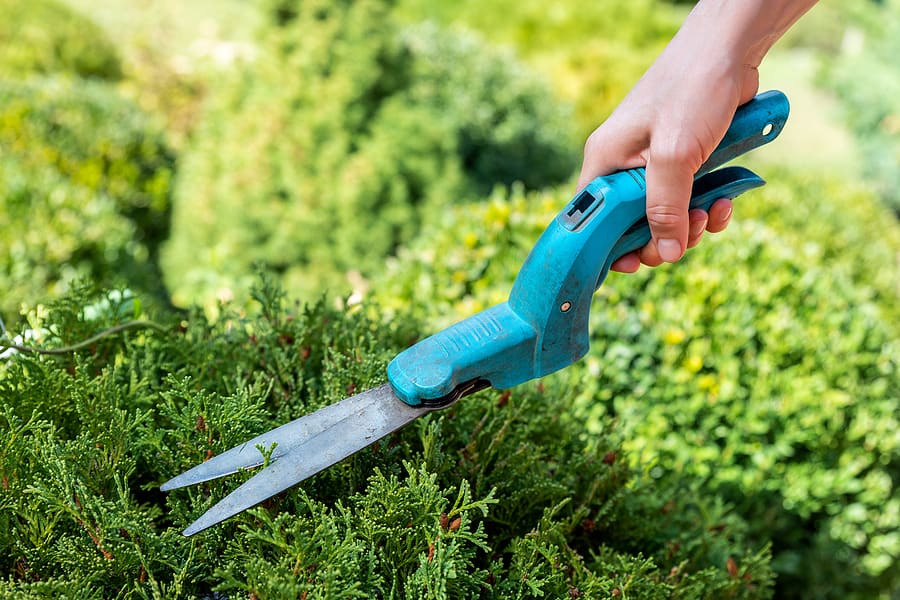
It’s safe to say that mosquitoes are a major nuisance pest during the spring and summer months. These pests can quickly ruin a backyard barbeque with their incessant swarming and biting of your guests! Before peak mosquito season hits and their activity increases, prep your yard early to prevent mosquitoes.
Eliminate Breeding Sites
The elimination of breeding sites is essential to preventing mosquitoes. Mosquitoes breed in stagnant water. If there has been a recent thunderstorm, it’s likely that objects in your yard are holding water. Items that can hold water include toys, buckets, outdoor pet bowls, and tire swings are all perfect places for mosquitoes to breed. Other objects meant to hold water, such as fountains or birdbaths, can also attract mosquitoes. Removing these objects or making sure to empty them of water will help eliminate the chance of mosquito infestations during the warmer months.
Clean Up Clutter
Leaves and debris after a thunderstorm can cause clogged gutters, resulting in the perfect place to breed mosquitoes. Ensure that your home’s gutters are clear of debris, especially after it’s been raining. Consider installing gutter guards that save you time, reduces the risk of injuries, and helps prevent mosquitoes and other pests. Mosquitoes also like to hide in tall grass and shrubbery. It’s crucial to maintain your grass and shrubs, keeping both trimmed and the grass cut short.
Call the Pros
Mosquito control and prevention can sometimes feel like a never-ending battle. A professional pest control company can provide homeowners with a customized prevention and treatment plan to help eliminate these pests. Being proactive and starting mosquito treatments now will help in controlling mosquitoes during peak season!
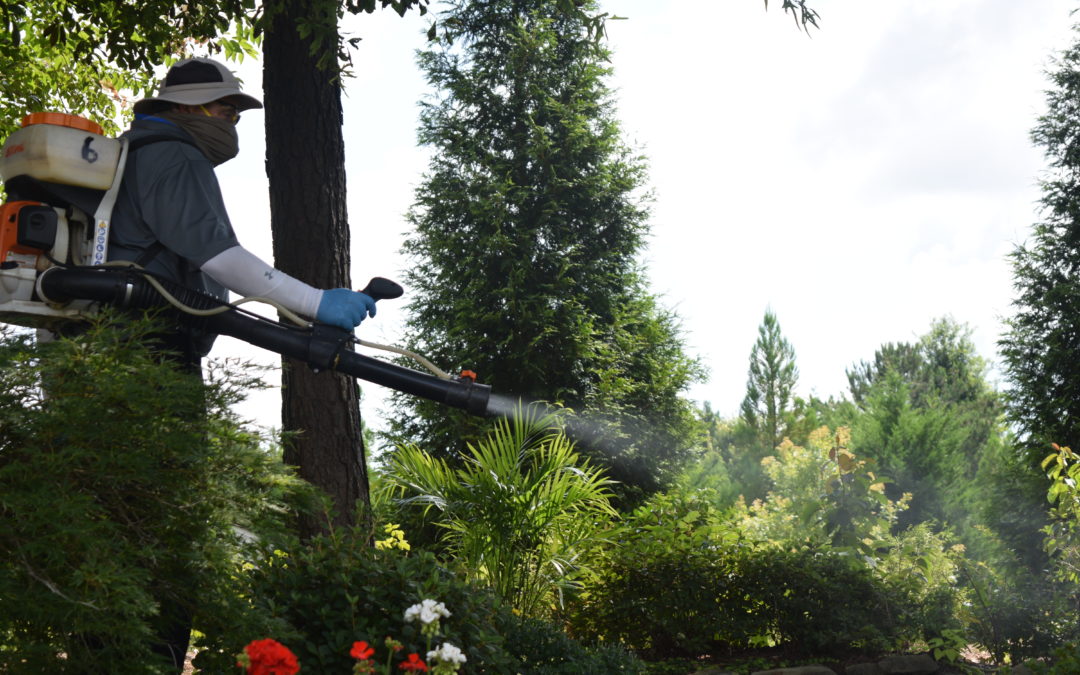
Mosquito season is right around the corner! Heat and humidity during these months combine to provide an ideal environment for mosquitoes to thrive. The season usually starts in the spring and peaks over the summer. Besides leaving behind itchy, red welts, these nuisance pests are dangerous to humans by vectoring serious diseases like Zika virus, West Nile virus, and chikungunya. Fortunately, there are several green pest control options you can utilize as an eco-friendly alternative to control mosquitoes. Here are 3 steps you can take for green mosquito control.
The first step to controlling mosquitoes is identifying and eliminating what attracts them in the first place. Mosquitoes will come around in search of two things: nesting sites and resting sites.
Where do mosquitoes breed? Every species of mosquito lays its eggs in water. While the type of water source may vary between species, it only takes a minute amount of water for mosquitoes to hatch and develop. Get rid of any potential breeding sites by:
Once mature, adult mosquitoes will often rest in shady areas that are protected from the wind. Some common resting sites include trees, shrubs, potted plants, patios, and front entryways.
Any time you can protect yourself from mosquito bites you should. Prevent mosquito bites by:
Yards and climates vary across the region so the effectiveness and longevity of mosquito treatments will vary from home to home. Regardless of where you live or what kind of home you have, a green mosquito control program can be effective at helping control mosquito populations. Green mosquito control utilizes eco-friendly products that are just as effective as traditional products.
A complete green reduction program includes monthly mosquito treatments during mosquito season. Green treatments use products that are derived from flowers and botanicals and area only applied to the areas where they are needed instead of over the entire yard. They are effective at reducing both adult and larvae populations.
The green mosquito reduction program includes an inspection to identify resting and nesting sites; larvacide and adulticides to target all aspects of the population; source reduction and elimination by removing any areas of standing water; and a service guarantee where they will come back between treatments if needed, usually at no cost.
If you have a problem with mosquitoes or any other pests, contact a professional pest control company who can provide you with a thorough inspection and the most up to date traditional pest control and green treatment options available for you.
Termites: Prevent Before They Infest!
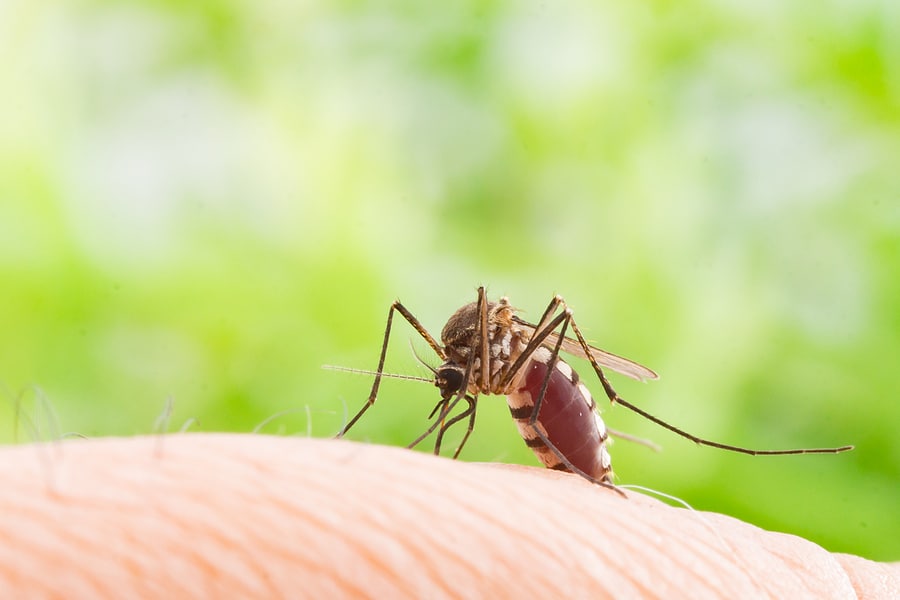
Mosquitoes are known to be a nuisance. With the warmer weather upon us, taking the necessary steps to avoid these pests is extremely important. Mosquito control treatments performed by professionals can help reduce these pests by targeting adult mosquitoes and larvae throughout your property. There are several factors that determine how these treatments can help protect you, your family, and your property.
Mosquito season typically runs from April to October, with warm seasons being a major factor in their activity. Mosquitoes are highly attracted to standing water. They will usually lay their eggs in water for survival, only needing a small amount of water to do so. Once these eggs hatch, it can be difficult to try and control them.
If mosquitoes have hatched and are roaming your property, they can find their way inside your home. Mosquitoes are small, measuring only 1/8 – 3/8” long. They can easily fit inside small holes or gaps leading into your house. Ensuring that your windows and doors have screens in good repair is essential for keeping them out. If inside, mosquitoes will search for a perfect place to lay eggs, including in areas with house plants and water trays. These nuisance pests will lay their eggs in water trays and even feed off the plants for energy.
Female mosquitoes will bite and feed on humans and animals, as they require a blood meal to lay fertile eggs. These bites can become red, itchy, and irritating for both humans and animals. Mosquito bites are equally dangerous; mosquitoes can spread viruses such as West Nile or dengue fever through their bites. To avoid mosquito bites, take precautions when you know you’ll be outside during the peak season. Use EPA-registered mosquito repellants, wear long-sleeved shirts and pants, and avoid using scented lotions or bath products.
With mosquito treatments, a pest professional can inspect your property and identify the resting and breeding areas to more effectively eliminate these pests. These services are recommended monthly during peak mosquito season so you can have a bite-free spring and summer! If you are concerned with mosquitoes on your property, contact your local pest control company for a free inspection!
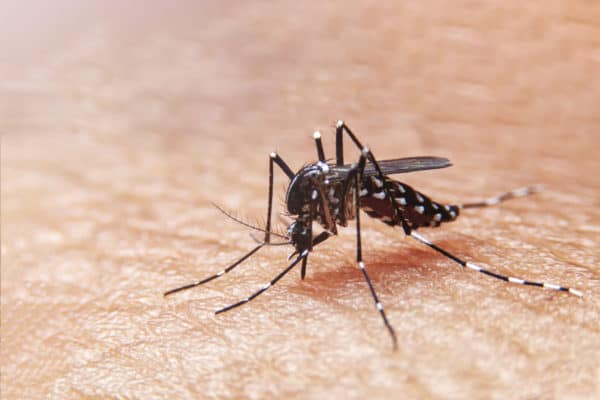
The peak of mosquito season is from April to October. During this time, mosquitoes invade, leaving behind itchy bites and aggravation. They are also capable of spreading serious diseases such as Zika and West Nile virus. While many of us take precautions by using mosquito repellent and wearing long sleeved clothing, sometimes these prevention techniques just aren’t enough. A mosquito treatment is often needed to help control mosquito populations.
There are two options to mosquito treatments – green and traditional. Green mosquito treatments utilize products derived from flowers and bacteria that are only applied to the areas where they are needed, minimizing their impact on surrounding areas. These treatments also work on adult and larvae.
A traditional mosquito treatment consists of 5 steps:
How much does a mosquito treatment cost? Treatments typically last between 21 and 30 days and should be applied as often. Most treatments are billed per 1/4 acre or per 1/2 acre. Generally only the perimeter of the yard is treated, concentrating on areas of foliage and woods. The average cost of a mosquito treatment is between $350 and $500 per season for a 1/4 to 1/2 acre property. This cost can range anywhere from $325 up to $1900 depending on the size of the property and the frequency of treatments. Mosquito treatments are performed on a monthly basis with an average of $70 to $100 cost per visit. Some companies will offer a discount on this rate if you sign up for recurring treatments.
While there are DIY mosquito treatments available, a professional pest control company has the experience, training, and equipment to get rid of mosquitoes and keep them away. Most will utilize an Integrated Pest Management (IPM) program that combines a variety of treatment and control methods to eliminate mosquitoes with minimal impact to the surrounding environment.
Protecting Your Garden From Birds
The 411 on Granddaddy Long Legs
The Summer Big Three: Roaches, Mosquitoes, & Termites
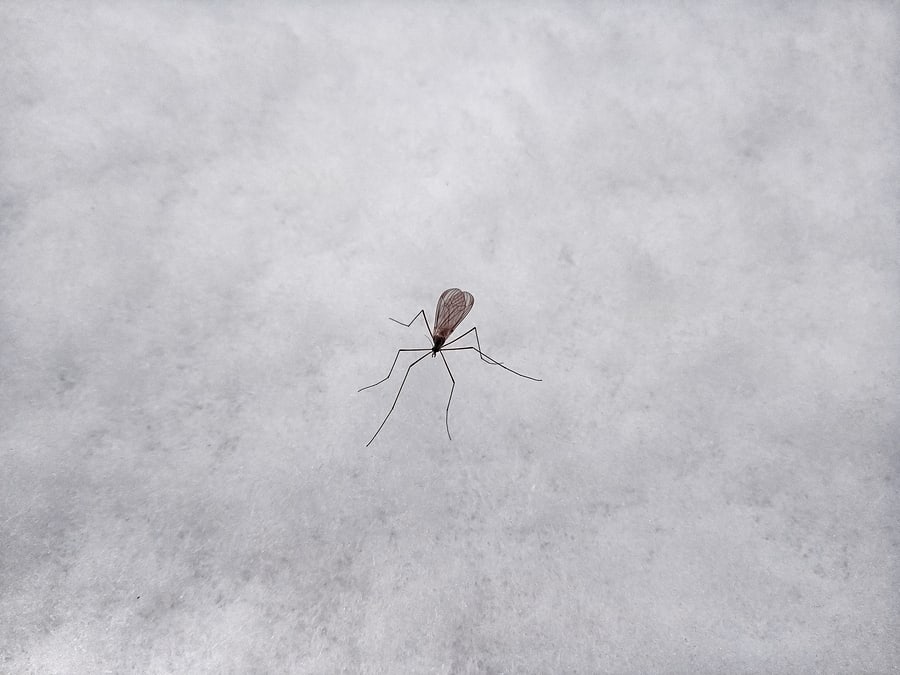
While we don’t often think of mosquitoes in the cold winter months, don’t let them stray too far from your mind. Although they might not be active this time of year, it’s never too early to start preparing for the start of mosquito season. Prevention is key in mosquito control. While most male mosquitoes die off when colder weather moves in, female mosquitoes go into a state similar to hibernation called diapause. They are oftentimes fertilized just before they enter diapause so that they are ready to lay eggs as soon as the weather warms up in the spring. Mosquito eggs can also go into diapause. Female mosquitoes will often lay eggs in standing water just before the weather cools down for winter. These eggs will then go into diapause and then hatch once the temperatures increase to above 50 degrees Fahrenheit consistently. Because of this, winter is a great time to perform some do-it-yourself mosquito prevention techniques.
Where Did These Ants Come From?
Keep Your Lawn Healthy This Winter
How to Deal With Moles This Winter